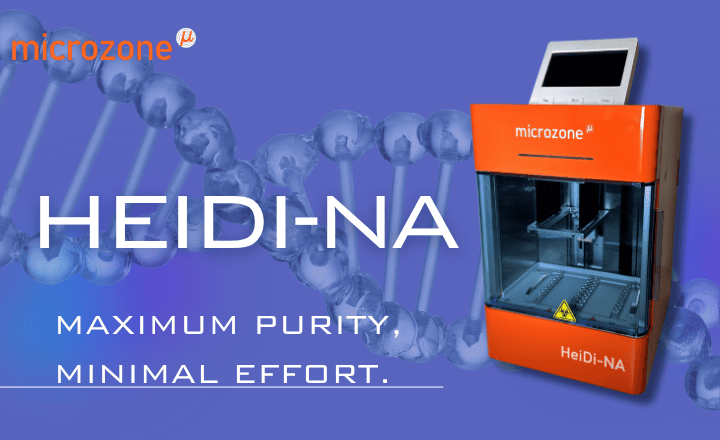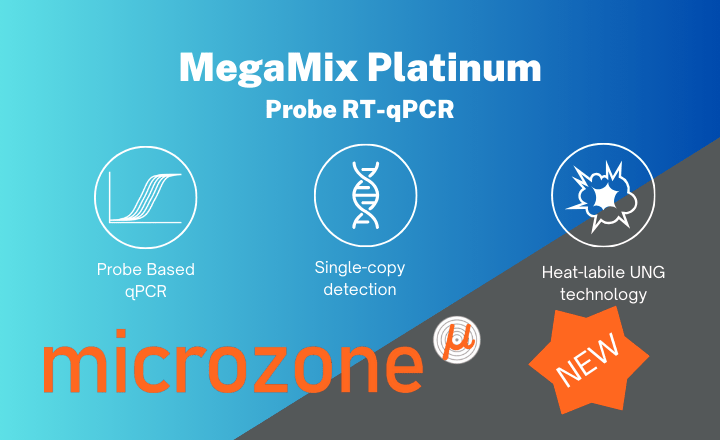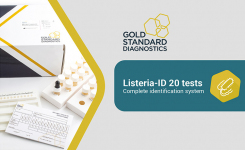
Increasing competitiveness within the molecular diagnostic sector was evident at this year’s ECCMID in Copenhagen, Denmark. Yet, surprisingly only two companies had RT-PCR Filovirus tests on the market that detect the Marburg virus which is currently causing outbreaks in Central and East Africa.
Marburg virus, a cousin of the deadly Ebola virus, was first discovered in 1967 in Germany, and both companies with assays also hail from the European country.
altona Diagnostics, based in Hamburg, is exporting its RealStar® Filovirus Screen RT-PCR kit 1.0 to the Marburg-affected African provinces, Equatorial Guinea and Tanzania.
The RealStar® assay detects filovirus-specific RNA for all human pathogenic filoviruses and differentiates between Marburg and Ebola-type viruses. Comprising three channels that include internal and positive control, the kit is ready to use with CE-IVD marking.
altona Diagnostics initialized development on their Filovirus kit in 2013, partnering with members of the QUANDHIP project (Quality Assurance Exercises and Networking on the Detection of Highly Infectious Pathogen) that aimed to provide the EU with a rapid response to outbreaks by linking laboratories together. “We developed this kit together with major laboratories in this field. Close to our base in Hamburg, we collaborated with the Bernhard Nocht Institute for Tropical Medicine (BNITM) and Porton Down in England, among others. We were just ready to launch the product in 2014 when there was an outbreak in West Africa”, said Dr. Stephan Ölschäger, Head of Marketing at altona Diagnostics.

Image: altona Diagnostics' RealStar Filovirus Screen RT-PCR Test
In 2014, altona Diagnostics' assay was used by the first mobile labs deployed to West Africa as part of the WHO Global Outbreak Alert Response Network (GOARN) during that outbreak, and then later that year accepted under the WHO’s emergency quality assessment (EQA) for procurement by the UN and other partners to Ebola-affected countries.
Like Ebola, the Marburg virus causes viral haemorrhagic fever and has a fatality rate of nearly 80%. The WHO’s latest bulletin on the situation in Equatorial Guinea and Tanzania announced that 11 people had died from the virus out of 16 lab-confirmed cases.
The WHO confirmed there had been no change in transmission of the virus. According to altona Diagnostics, there have been no genomic differences either that could affect the validity of their Marburg assay: “After every outbreak, the sequences are published and we do post-market surveillance, and this hasn’t revealed any variants that would affect our tests. The researchers sequence and upload to Genbank where it allows us to match up our test to check with our primes and probes if they still match, and which they do,” confirmed Leonie Hecht, Sales Manager, altona Diagnostics.
The company regularly exports the Filovirus test to Africa. Asked if they’ve noticed any spike in ordering from these countries: “There hasn’t been a noticeable increase for Equatorial Guinea, compared with Tanzania which is getting more,” said Leonie.
TIB Molbiol, based in Berlin, made their mark at the start of the COVID-19 pandemic with the first RT-PCR kit on the market to detect SARS-CoV-2 and were subsequently acquired by diagnostics giant Roche after years of working together.
“One of our strategic pillars is to do an early response development, we were first with monkeypox as well as SARS-CoV-2. Our Marburg test was an overnight development that was clearly needed,” said Jasmin Dehnhardt, TIB Molbiol’s Head of Commercial and Services.
TIB Molbiol originally developed their Marburg assay in 2017 as part of a haemorrhagic fever panel. The now reactivated LightMix® Modular Marburg Virus (53-0731-96) test detects Marburg and Ravn viruses only. Its primers and probes target a conserved region of the nucleoprotein gene of the MarV genome, enabling the detection of viral RNA in the tested sample.
According to Jasmin, the export of dual-use products like the Marburg test is tightly controlled by Germany’s Federal Office for Economic Affairs and Export Control (BAFA). “We cannot sell such products to Afghanistan, Iraq, Iran, the Democratic Republic of the Congo, Ruanda, Sierra Leone, Zimbabwe, Somalia, Sudan at all, and many others only with a EUD (End Use Declaration) that it is only civil used.”
TIB Molbiol’s Marburg test must be handled as a lab-developed test if used in a diagnostic setting as it is graded as a Life Science Research (LSR) kit.























